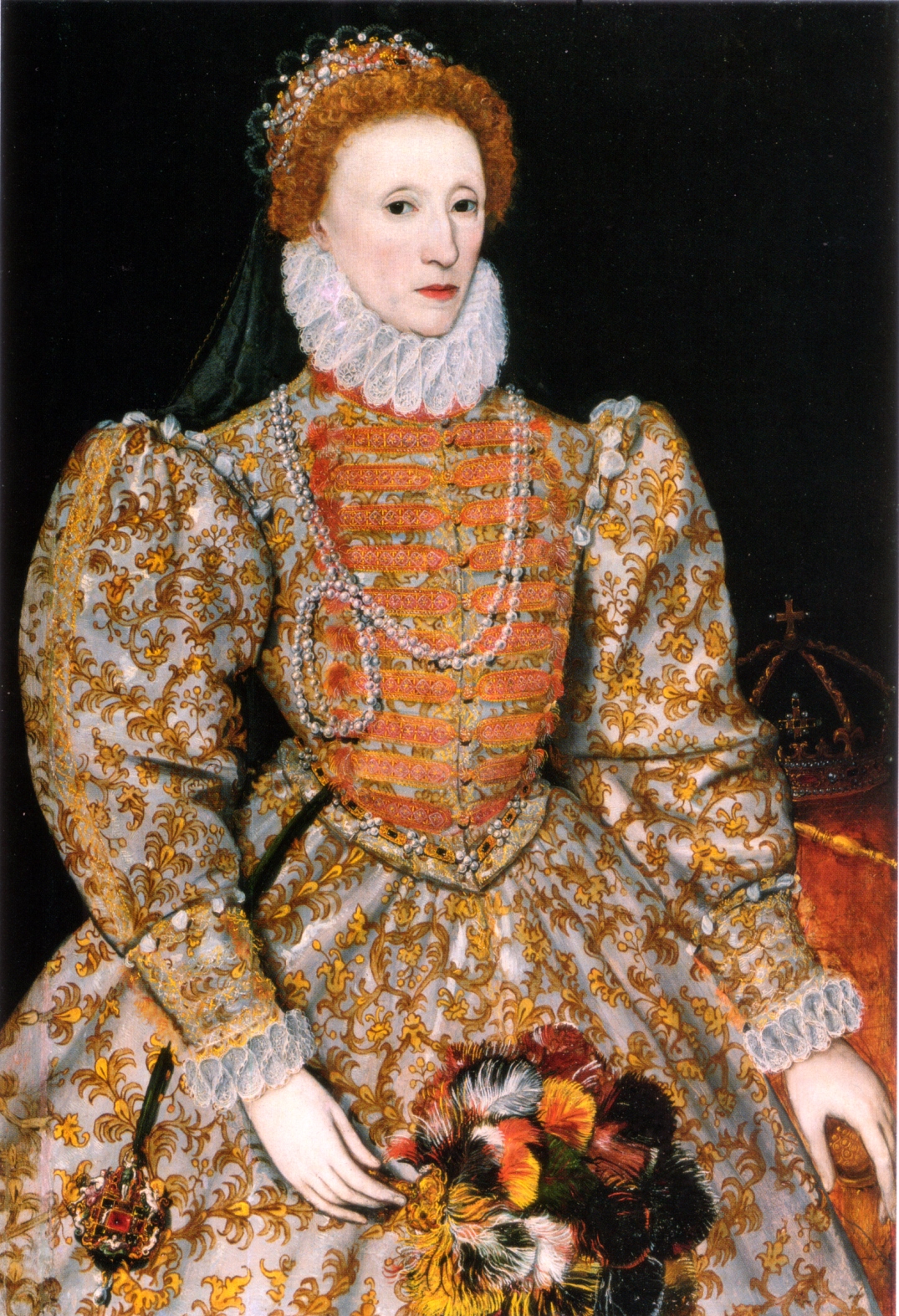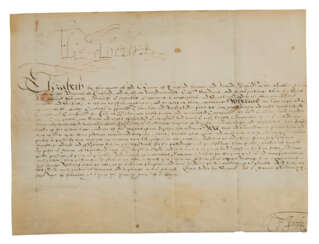Elizabeth I (1533 - 1603) — Auction price

Elizabeth I was Queen of England and Ireland from 1558 to 1603 and was the last monarch of the Tudor dynasty.
Elizabeth was the daughter of Henry VIII and Anne Boleyn, his second wife, who was executed when Elizabeth was two years old. Her youth was full of uncertainties, and her chances for the throne seemed very slim. Against all odds, however, Elizabeth inherited the throne after the death of her half-sister in November 1558. She was very well educated, fluent in five languages, intelligent, determined, and shrewd.
Above all, Elizabeth was committed to maintaining peace and stability in England. Her 45-year reign is considered one of the most glorious in English history, a path of triumph and success. Under her rule a secure Anglican church was established. Elizabeth's reign was marked by many bold discoveries, and the arts flourished as well.
Elizabeth chose never to marry. She used her prospects of marriage as a political tool in foreign and domestic politics. However, the "virgin queen" was presented as a selfless woman who sacrificed personal happiness for the good of the nation.


Elizabeth I was Queen of England and Ireland from 1558 to 1603 and was the last monarch of the Tudor dynasty.
Elizabeth was the daughter of Henry VIII and Anne Boleyn, his second wife, who was executed when Elizabeth was two years old. Her youth was full of uncertainties, and her chances for the throne seemed very slim. Against all odds, however, Elizabeth inherited the throne after the death of her half-sister in November 1558. She was very well educated, fluent in five languages, intelligent, determined, and shrewd.
Above all, Elizabeth was committed to maintaining peace and stability in England. Her 45-year reign is considered one of the most glorious in English history, a path of triumph and success. Under her rule a secure Anglican church was established. Elizabeth's reign was marked by many bold discoveries, and the arts flourished as well.
Elizabeth chose never to marry. She used her prospects of marriage as a political tool in foreign and domestic politics. However, the "virgin queen" was presented as a selfless woman who sacrificed personal happiness for the good of the nation.

![[ELIZABETH I (1533-1603)].](/assets/image/picture_2945045/ddfad/e62990c18d4c8bf371d8ca34cc48a1481689112800jpg__fix_374_244.jpeg)
![[ELIZABETH I (1533-1603)].](https://veryimportantlot.com/assets/image/picture_2945045/ddfad/e62990c18d4c8bf371d8ca34cc48a1481689112800jpg__fix_374_244.jpeg)

